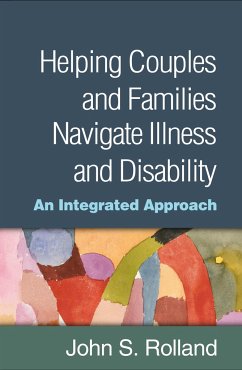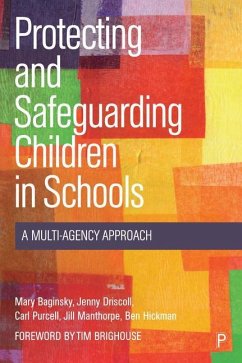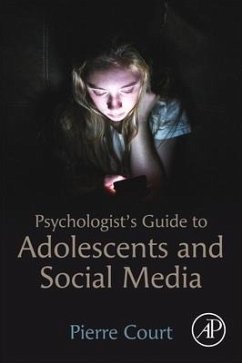
Cyberbullying: Helping Children Navigate Digital Technology and Social Media
Versandkostenfrei!
Versandfertig in 2-4 Wochen
36,99 €
inkl. MwSt.
Weitere Ausgaben:

PAYBACK Punkte
18 °P sammeln!
A timely and evidence-based resource for parents and practitioners working with youth to promote positive online behavior and address cyberbullying and related aggression In Cyberbullying: Helping Children Navigate Digital Technology and Social Media, a team of renowned psychologists and bullying experts delivers a practical resource for parents and professionals seeking to address real-world online bullying and aggressive behaviors. The book provides balanced coverage on how to keep kids safe online, fostering online behavior which promotes positive development. The authors offer guidance for...
A timely and evidence-based resource for parents and practitioners working with youth to promote positive online behavior and address cyberbullying and related aggression In Cyberbullying: Helping Children Navigate Digital Technology and Social Media, a team of renowned psychologists and bullying experts delivers a practical resource for parents and professionals seeking to address real-world online bullying and aggressive behaviors. The book provides balanced coverage on how to keep kids safe online, fostering online behavior which promotes positive development. The authors offer guidance for helping children navigate the digital world that counters misinformation, myths, and media-fueled negativity. They provide a thoughtful account of both the dangers and the benefits of digital technology and social media, walking you through: * Research-driven insights into youth social-emotional development, including peer relationships, aggression, and bullying * Evidence-based information and strategies that guide children in their use of technology, including how to promote responsible and respectful behavior online and how to communicate with others about cyberbullying and related aggression * Legal consequences and liabilities of cyberbullying and related online aggressive behavior, as well as relevant international considerations for families and professionals Cyberbullying: Helping Children Navigate Digital Technology and Social Media will prove invaluable to families, educators, and other professionals working with children and looking for resources to help them promote positive online behavior and address online threats to their well-being.













